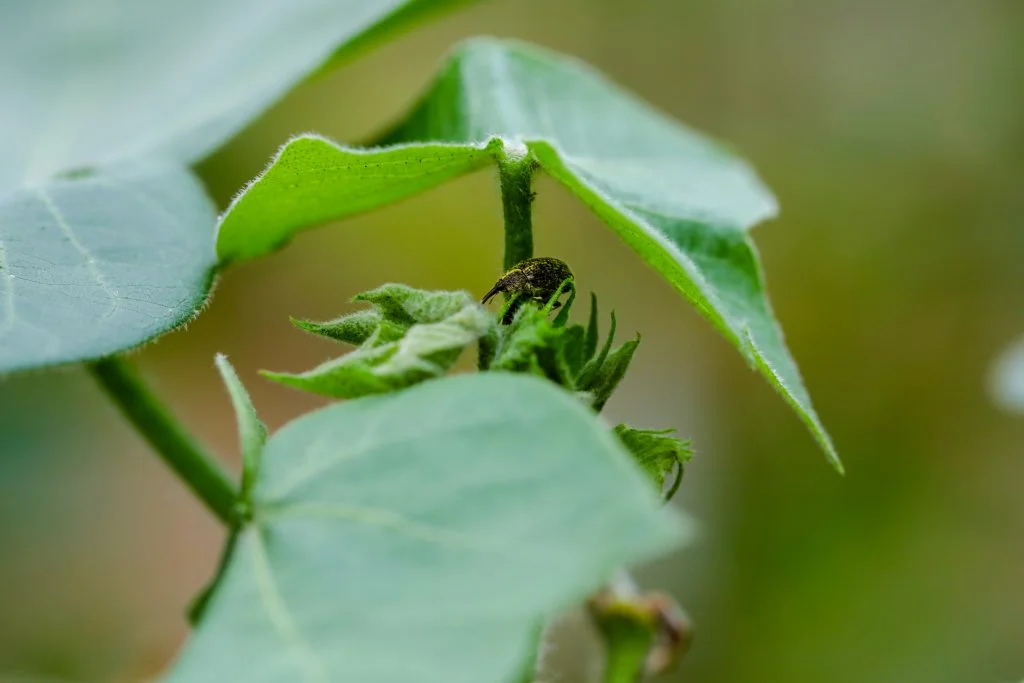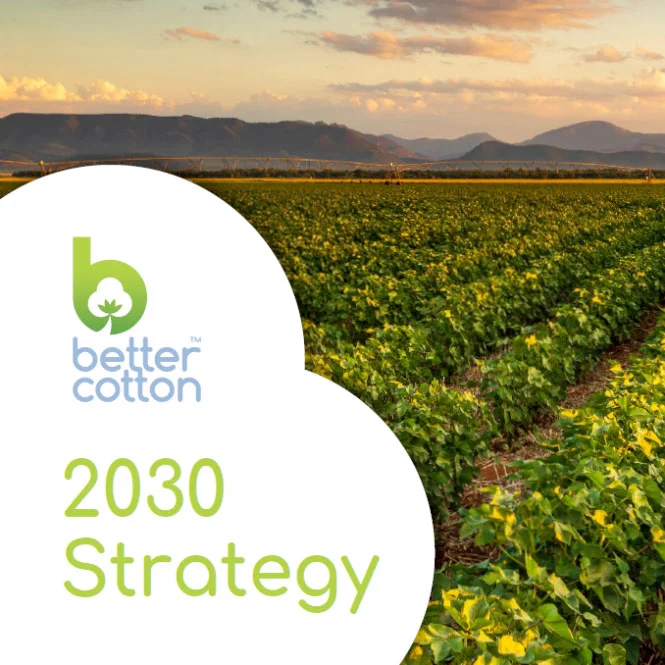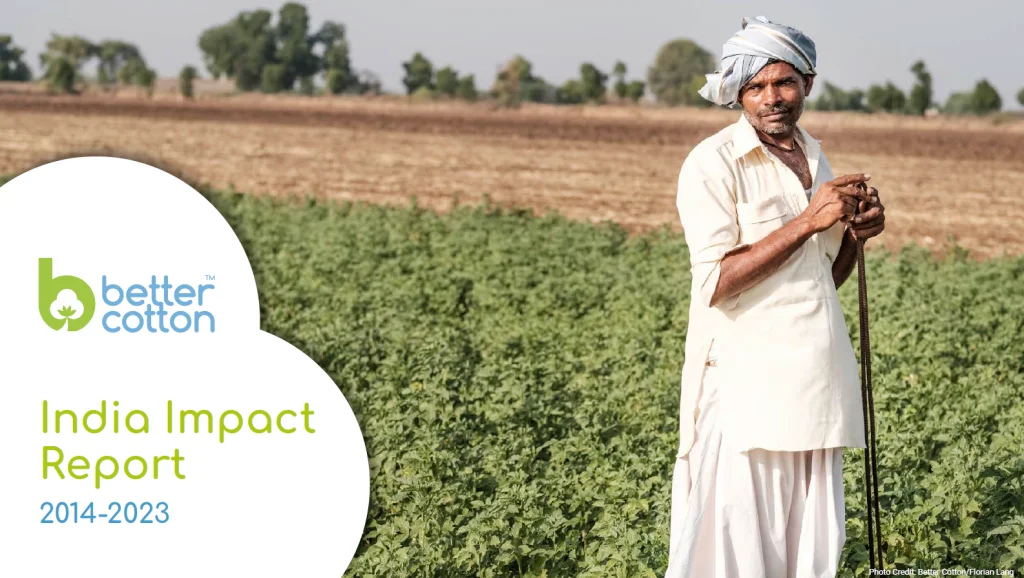- Who we are
- What we do
In just over 10 years we have become the world’s largest cotton sustainability programme. Our mission: to help cotton communities survive and thrive, while protecting and restoring the environment.
- Where we grow
Better Cotton is grown in 22 countries around the world and accounts for 22% of global cotton production. In the 2022-23 cotton season, 2.13 million licensed Better Cotton Farmers grew 5.47 million tonnes of Better Cotton.
- Our impact
- Membership
Today Better Cotton has more than 2,700 members, reflecting the breadth and diversity of the industry. Members of a global community that understands the mutual benefits of sustainable cotton farming. The moment you join, you become part of this too.
- Associate Membership
- Civil Society Membership
- Producer Organisation Membership
- Retailer and Brand Membership
- Supplier and Manufacturer Membership
- Find Members
- Member Monitoring
- Better Cotton Platform
- myBetterCotton
- Resources – Better Cotton Conference 2022
- Complaints
- Whistleblowing
- Safeguarding
- Get Involved in the Better Cotton Programme
- Thank you for contacting us
- Better Cotton’s Data Privacy Policy
- Log in
- Members’ Area
- Request for Proposals
- Better Cotton Cookie Policy
- Web Reference
- Measuring Cotton Consumption
- How to Implement the Chain of Custody Standard
- Resources – Better Cotton Conference 2023
- Certification Bodies Old
- Latest
- Sourcing
- Latest
The founding premise of Better Cotton is that a healthy sustainable future for cotton and the people that farm it is in the interests of everyone connected with it.
Let us help you find what you’re looking for
Results for {phrase} ({results_count} of {results_count_total})Displaying {results_count} results of {results_count_total}


By Gregory Jean, Standards and Learning Manager at Better Cotton
At Better Cotton, one of our key areas of focus as we look to protect and restore the environment is reducing the use of synthetic pesticides in cotton farming. Pesticides, and in particular Highly Hazardous Pesticides (HHPs), can cause harm to both people and the environment. Moreover, the overuse of pesticides can disrupt populations of beneficial insects – natural defences against pests – and increase pesticide resistance. This in turn can cause a vicious cycle which leads to even more pesticide usage.
In our 2030 Strategy, we outlined our target to reduce the use and risk of synthetic pesticides applied by Better Cotton Farmers and workers by at least 50% by the end of the decade. In order to achieve this, we are continuing to support farmers in adopting an Integrated Pest Management (IPM) approach to crop protection, while strengthening the way our standard system – deals with this topic.
Integrated Pest Management is an approach which emphasises the growth of a healthy crop with the least possible disruption to agroecosystems. IPM doesn’t prohibit pesticides completely, but it focuses first on the prevention of pest pressures and then regular, careful monitoring of pest populations. When pest numbers are high enough that control measures are necessary, non-chemical methods such as biopesticides or traps are the first choice, with conventional pesticides used as a last resort.
Adopting an IPM approach not only produces environmental benefits but can also help farmers reduce input costs and increase profits. Integrated Pest Management practices have already supported Better Cotton Farmers in India in reducing pesticide use – as demonstrated in our recent India Impact Report, overall pesticide use reduced by 53% from the 2014-17 cotton seasons to the 2021/22 season.
In order to increase the awareness and adoption of IPM practices among farmers over time, we require Producers to develop an Integrated Pest Management strategy under our Principles and Criteria (P&C), our farm-level standard. The revised version of our P&C, published earlier this year, puts even more emphasis on IPM as the basis of crop protection.
To support farmers in adopting Integrated Pest Management, Better Cotton is currently developing an IPM planning and monitoring framework. This framework will support cotton farmers, associations, extension agents and organisations that are working to foster the adoption of better farming practices in Better Cotton programmes. Building on an IPM Ladder which is being developed by Pesticide Action Network UK our framework will be used to:
- Identify strengths and weaknesses in current IPM practice
- Plan activities to promote innovative IPM techniques and increase their adoption
- Monitor the uptake and efficiency of IPM practice adoption and implementation
- Provide a common understanding of IPM best practice and a framework for improvement
We are currently testing and adapting this IPM framework through the development of pilot projects in 3 countries: India, Pakistan and Mozambique. These pilots are running over the course of the Principles and Criteria revision transition, which is taking place throughout the 2023/2024 cotton season.
These pilots aim to:
- Adapt the IPM practices under the framework to local contexts through collaboration between IPM experts and partners participating in pilot projects
- Identify gaps in capacity-strengthening and data management activities to support progress against the framework
- Develop a reporting mechanism to monitor progress on IPM uptake for analysis and reporting in countries
Once these pilots come to a close and the adaptation and testing of the IPM framework is complete, the results will be presented to other countries. The framework will then be scaled up from next season onwards, with Better Cotton providing support to partners during this process.


